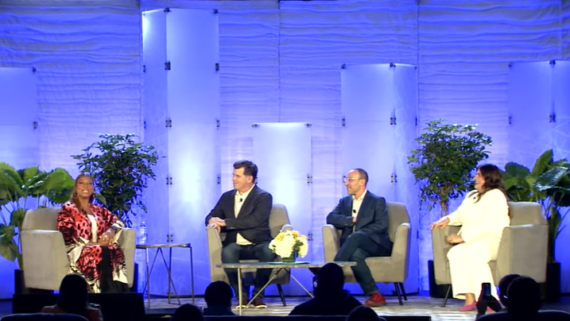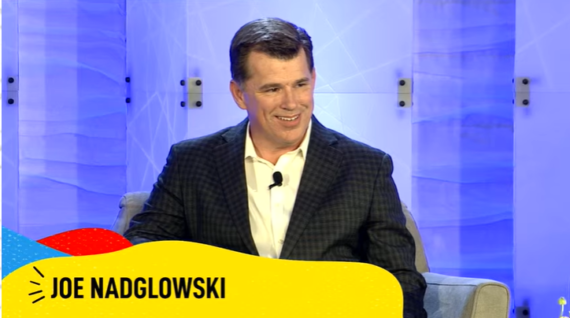
The It’s Bigger Than Me Live Tour, hosted by the PHENOMENAL Queen Latifah, kicked off Tuesday evening in New York City. The tour’s first event featured panelists Joe Nadglowski, OAC President & CEO; Scott Kahan, MD & OAC Board Member; and Katie Sturino, entrepreneur, author and body acceptance advocate. The group had an honest conversation about living with obesity and society’s role in weight stigma.
Queen Latifah shared powerful anecdotes from her time filming in Hollywood. She revealed that she was judged for her body size and told she would never become an A-List actress unless she lost the weight. But the multi-award winner sure did prove them wrong! She paved the way for others like her because she refused to take no for an answer. She showed society that we need to shift the way we think about obesity.
The word Obesity, as defined by the World Health Organization, is an excess fat accumulation that presents a risk to health. The word is often misunderstood, which leads to shame, blame and stigma. This is why we need to talk about it. We need to correct misconceptions about obesity and have open conversations in order to stop weight bias.
Mr. Joe Nadgolwski reminded us that bias is everywhere. In the workplace, women living with obesity are likely to make 15 percent less than their counterparts. In schools, children with obesity are likely to face bullying. And perhaps worst of all, when we are constantly shamed and blamed, we are likely to internalize that weight bias. We start to believe those hurtful things that are said to us, and we start telling them to ourselves. This affects our quality of life, and oftentimes we end up putting on more weight because shame and blame are not effective motivators for weight loss.

But Nadglowski says, “Shame and blame have no part of the solution. Let’s find a solution that focuses on empathy and compassion, and let’s make that happen today.”
So what does that solution look like? Well, we can start with this:
- If you see weight bias, challenge it!
- Continue to tell your stories and share your lived experiences.
- And most importantly, remember that you are not alone.
The panel discussion highlighted the vital role community plays in creating change. Let’s talk about obesity together, support one another and recognize that every person is struggling in some way. No matter our views, we can all agree that no one should be stigmatized because of their body size. We should celebrate our differences and amplify the voices of real people and their real stories about living with obesity.
Learn more about putting an end to weight bias at StopWeightBias.com, and check out the It’s Bigger Than Me movement at ItsBiggerThan.com.
